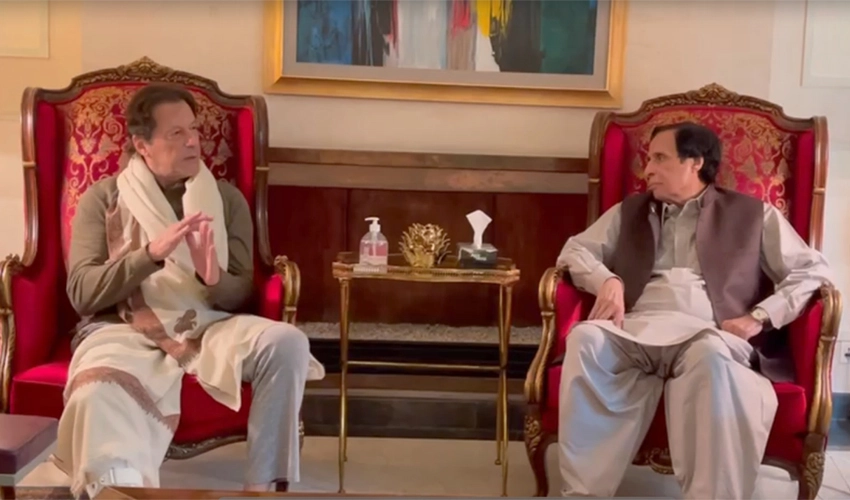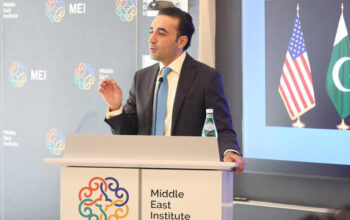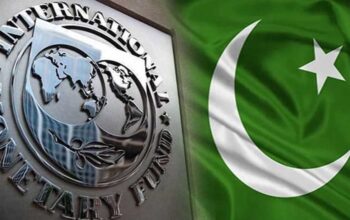By Ahmer Kureishi
Former Prime Minister Imran Khan has been threatening to dissolve the Punjab and Khyber-Pakhtunkhwa provincial assemblies for quite a while now. In particular, living a charmed life under this dangling Damocles’ sword has been the Punjab assembly and the government of Chief Minister Pervaiz Elahi, a key ally of Khan.
The federal government led by Prime Minister Shehbaz Sharif has in turn made noises about imposing the governor’s rule or bringing about in-house change to oust Elahi. The political temperature has been so high in recent months that it beggars belief that none of these eventualities, each with its own compelling logic, has come to pass.
So, what are the ingredients of the superglue holding together the assembly and the government in Punjab? The following four factors are at once discernable.
More complexity than meets the eye
If you think it is Sharif and his coalition versus Khan and his alliance, think again. Khan’s ally Elahi is a free agent, looking after his own interests – just as Khan puts his own interest above Elahi’s.
Likewise, on the other side of the fence, former President Asif Ali Zardari bats for Pakistan Democratic Movement (PDM), not for Sharif’s Pakistan Muslim League – Nawaz (PML-N). In fact, he has every right to try and revive the flagging fortunes of his own Pakistan Peoples Party (PPP) in the Pakistani heartland.
Obviously, a four-way struggle (not counting extra-political forces, some of whom may well be leaning on one or more of the political players) is substantially more complex than a two-way contest, especially when none of the contestants has the initiative and each wants to have the final move.
Khan is dependent on provincial resources
While his original “brand” paid a lot of lip service to simplicity, Imran Khan’s existence always had elements of a royal lifestyle. Over his four years in power, it those elements coalesced into imperial bravura, what with his helicopter rides over the couple miles between Bani Gala and office, his highly deferential trains, and the decorum of his addresses to the nation.
The former heartthrob who is still very much a heartthrob and acts accordingly has found it difficult to return to earth even after his ouster from power. His newly built and decorated Zaman Park house may have nothing on his sprawling Bani gala estate but it is palatial enough for this rough patch of his struggle.
But his life there is largely dependent on provincial resources including helicopters, bulletproof glass, his elaborate security arrangements deploying hundreds of uniformed men and so forth. He is not about to forego those perks on a whim.
But that is not all. Pakistan’s legal system is slowly but surely catching up with his antics – not a few of which fall afoul of the law of the land. Several independent court cases against him are approaching maturity, with the threat of arrest looming ever larger over his horizons. Small wonder he finds the charmed life afforded him by an allied provincial government handy.
Elahi is dead-set to cling on to power
The Chaudhry from Gujrat is known to be a tough customer, especially when he has some chips. He is said to be haggling with Khan to ensure he stays in the hot seat in the next assembly before dissolving this one. Khan has all but consented – on the condition Elahi joins Pakistan Tehreek-e-Insaf (PTI) – but the latter insists the PTI must support his candidates on as many as 30 provincial assembly seats.
This is a major wrangle, and the assembly gets to stay as long as the matter remains unresolved, because Elahi will not step down a day too soon.
Sharif’s not exactly keen on the election
Whether Khan manages to get Elahi dissolve the assembly or ends up vacating his party’s seats, the election becomes inevitable. But PM Sharif is not eager to hit the campaign trail any time soon for obvious reasons.
Khan’s strong showing in Punjab by-polls soon after his ouster must have instilled fear in his opponents’ hearts. What is more, the early romance of PDM’s return to power has worn off, and the electorate is visibly irate over the tough economy, which is turning out tougher than his coalition’s worst fears.
The governor’s rule in the province, too, is a bridge too far for him both because of the deterrence built into the Constitution against it through the Eighteenth Amendment and the fresh political martyrdom it can accord on Khan’s coalition.
Zardari’s waiting game is the best in town
The only civilian leader to complete his electoral term in the country’s history, President Zardari plays the waiting game better than any living politician. Astonishingly enough, he has put his party in a position where it can heartily share credit for any success of the PDM coalition governments success, but deflect blame for any of its failures.
A man of his word (as long as it suits him), Zardari can well afford to wait for PM Sharif to deliver before the polls – although he is not holding his breath for it.
So who exactly needs early polls?
All things considered, none of the major political players needs early polls, regardless of what they say to keep their political constituencies mollified. Under the circumstances, nobody should be too surprised if the Punjab assembly completes its term.
Copyright © 2021 Independent Pakistan | All rights reserved




